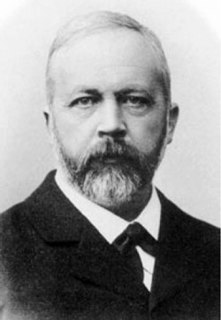A Quote by John Stuart Mill
There is never any fair and thorough discussion of heretical opinions... The greatest harm done is to those who are not heretics, and whose whole mental development is cramped and their reason cowed, by the fear of heresy.
Related Quotes
But why do some people support [the heretics]?" "Because it serves their purposes, which concern the faith rarely, and more often the conquest of power." "Is that why the church of Rome accuses all its adversaries of heresy?" "That is why, and that is also why it recognizes as orthodoxy any heresy it can bring back under its own control or must accept because the heresy has become too strong.
When mental development is under discussion, there are many who say, 'How does movement come into it? We are talking about the mind.' And when we think of intellectual activity, we always imagine people sitting still, motionless. But mental development must be connected with movement and be dependent on it. It is vital that educational theory and practice should be informed by that idea.
For what I saw at the abbey then (and will now recount) caused me to think that often inquisitors create heretics. And not only in the sense that they imagine heretics where these do not exist, but also that inquisitors repress the heretical putrefaction so vehemently that many are driven to share in it, in their hatred for the judges. Truly, a circle conceived by the Devil. God preserve us.
If anyone dared to assert that the Pontiff had erred in this or that canonisation, we shall say that he is, if not a heretic, at least temerarious, a giver of scandal to the whole Church, an insulter of the saints, a favourer of those heretics who deny the Church's authority in canonizing saints, savouring of heresy by giving unbelievers an occasion to mock the faithful, the assertor of an erroneous opinion and liable to very grave penalties.







































